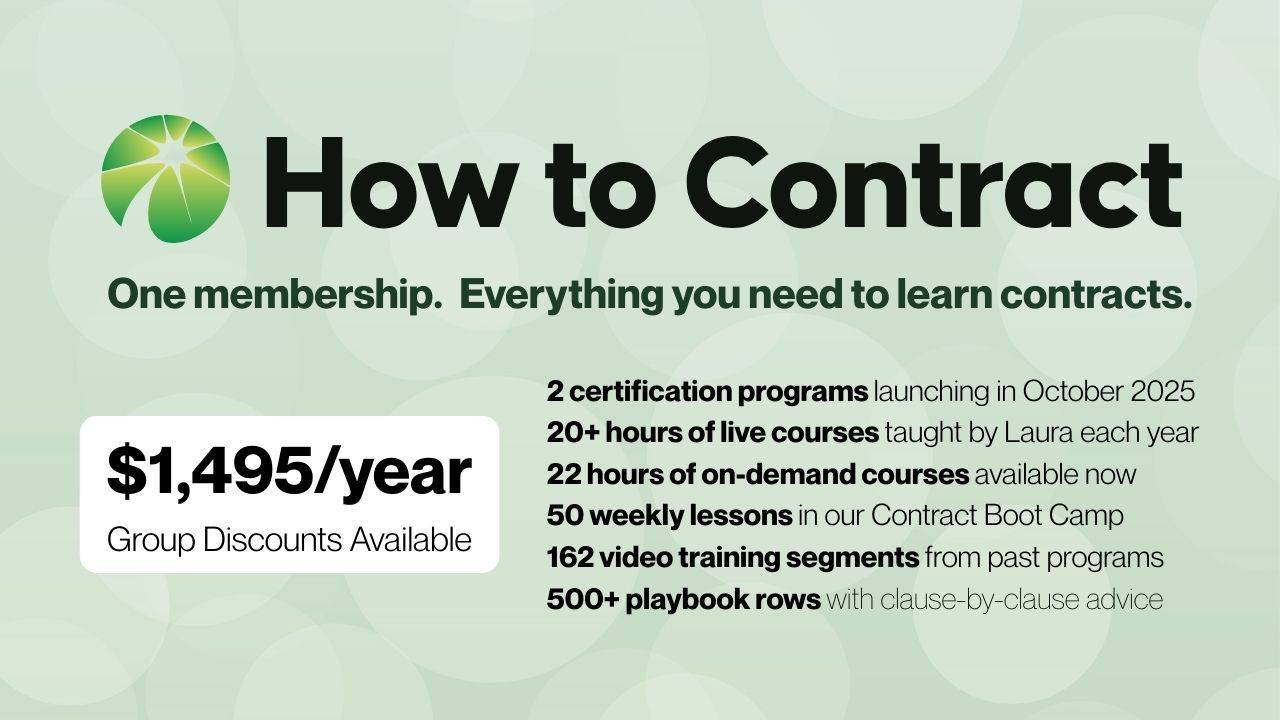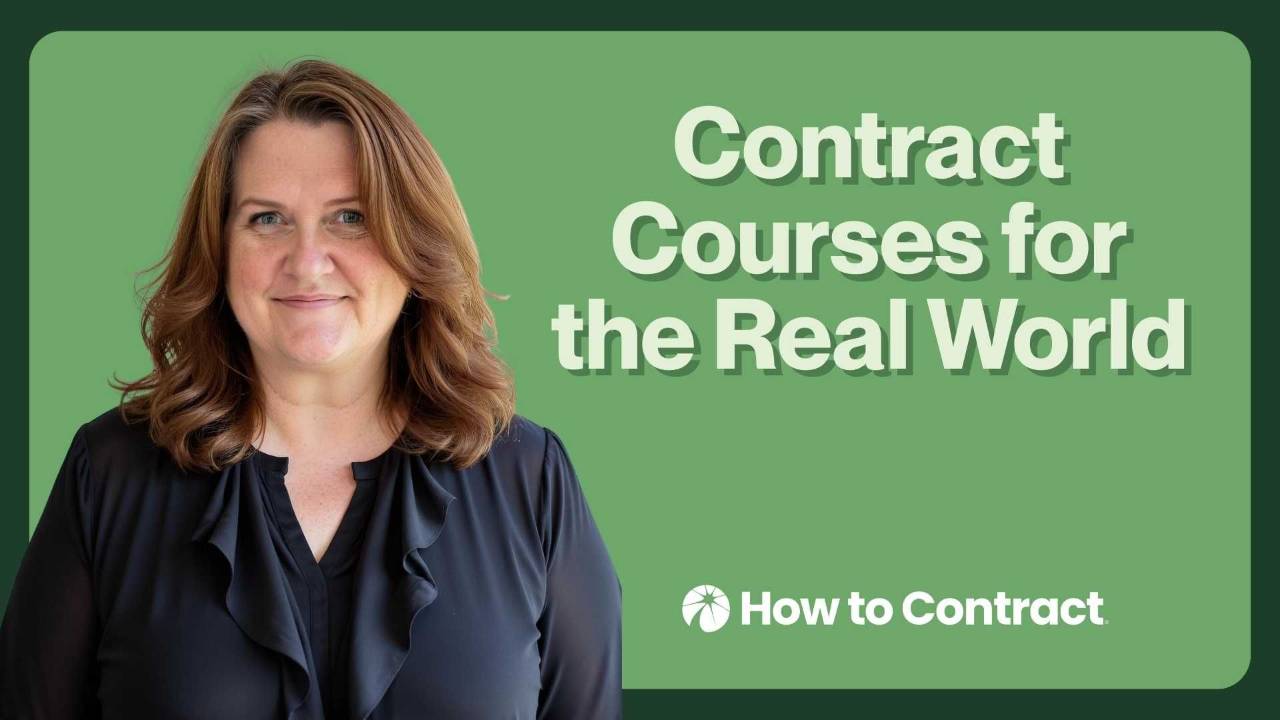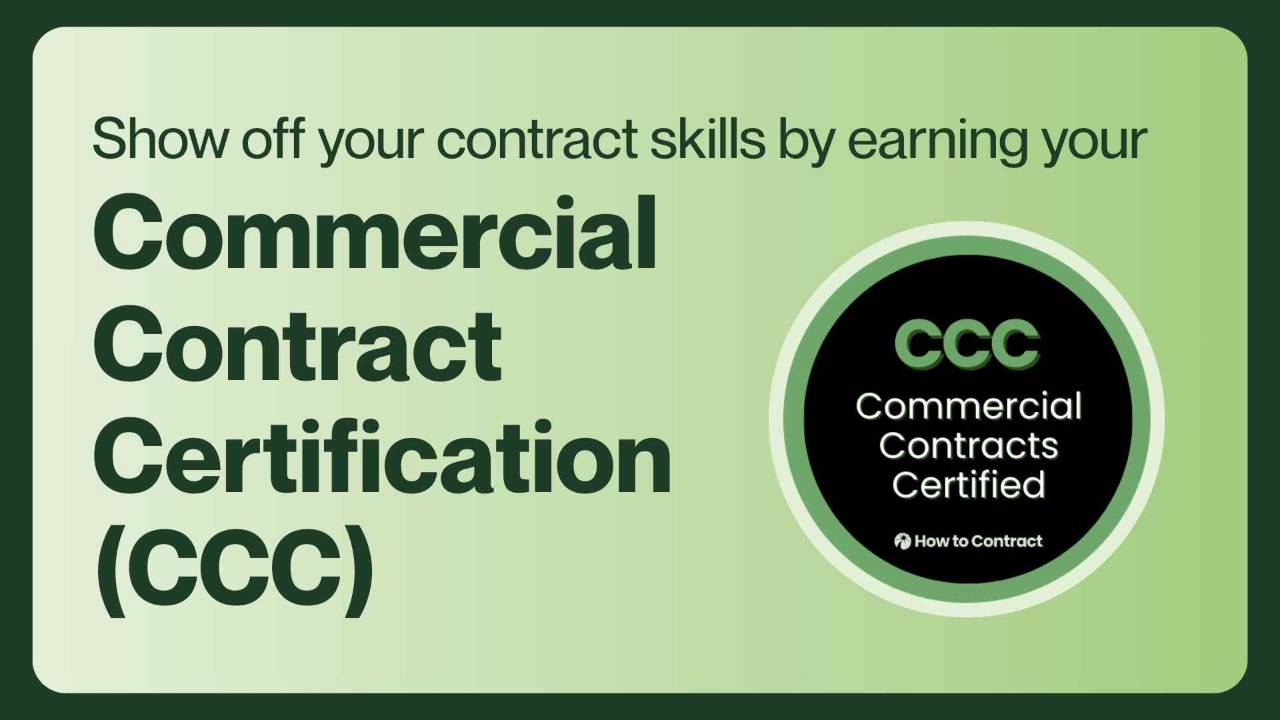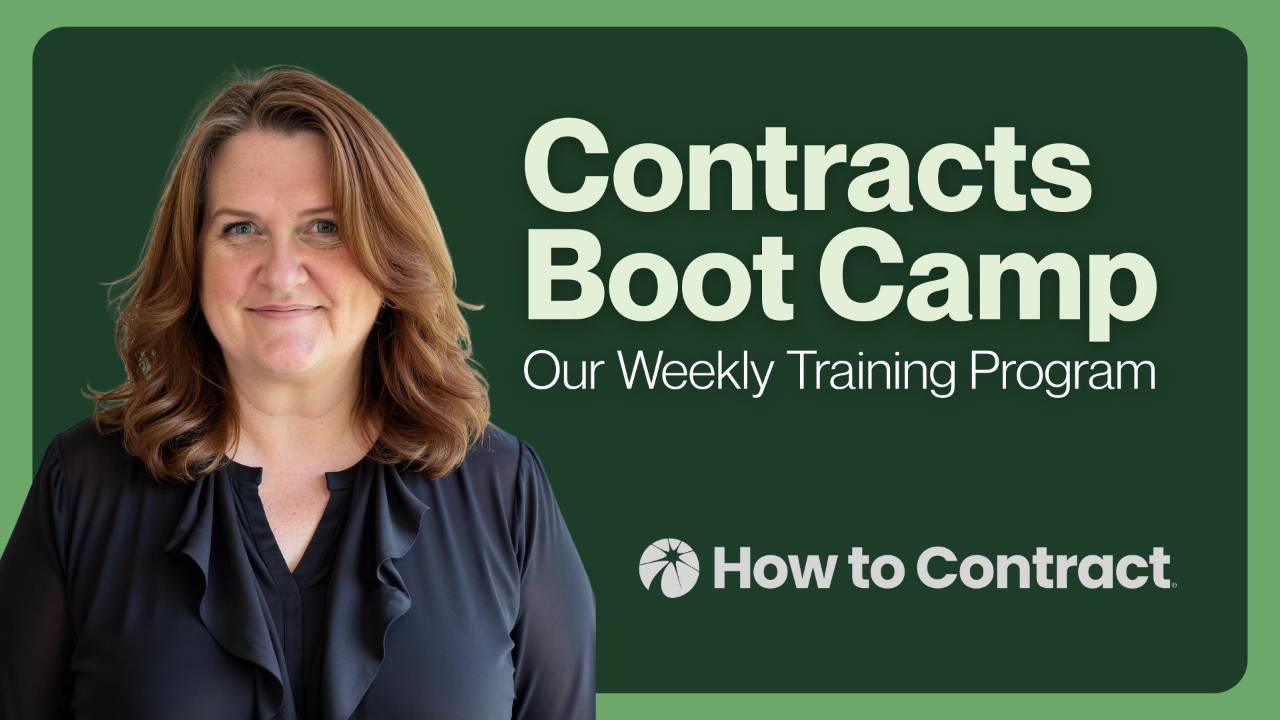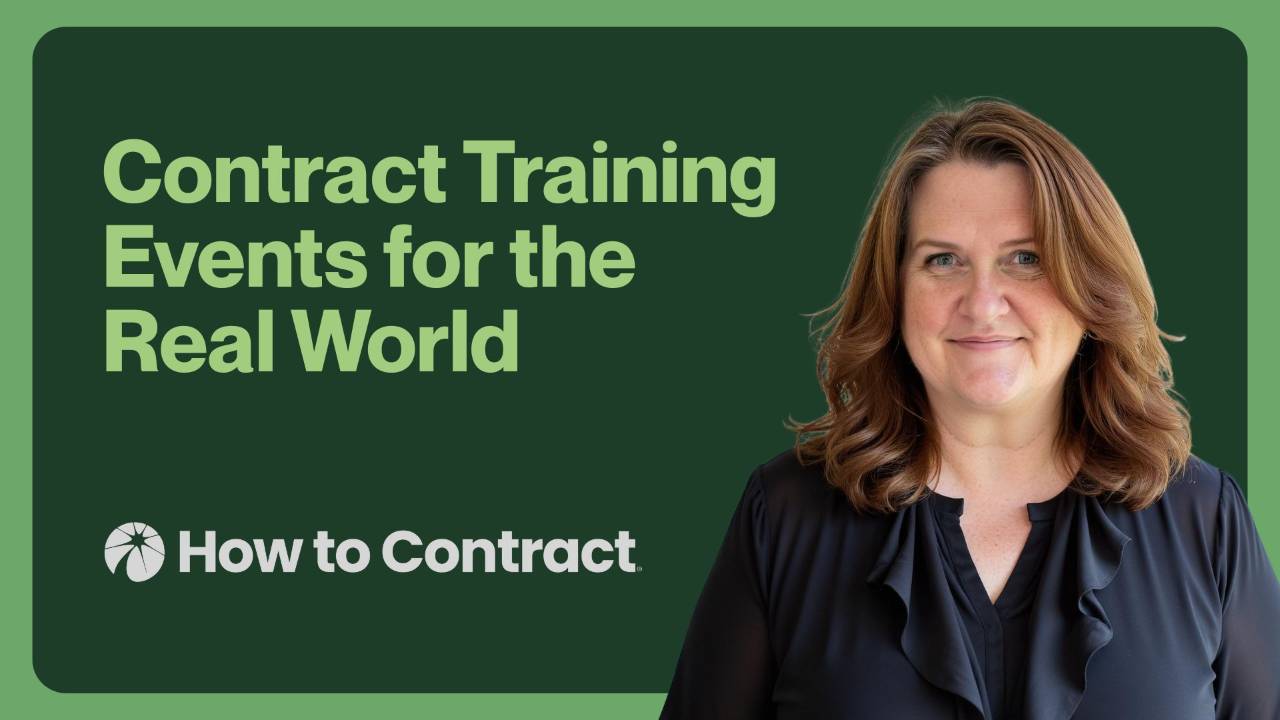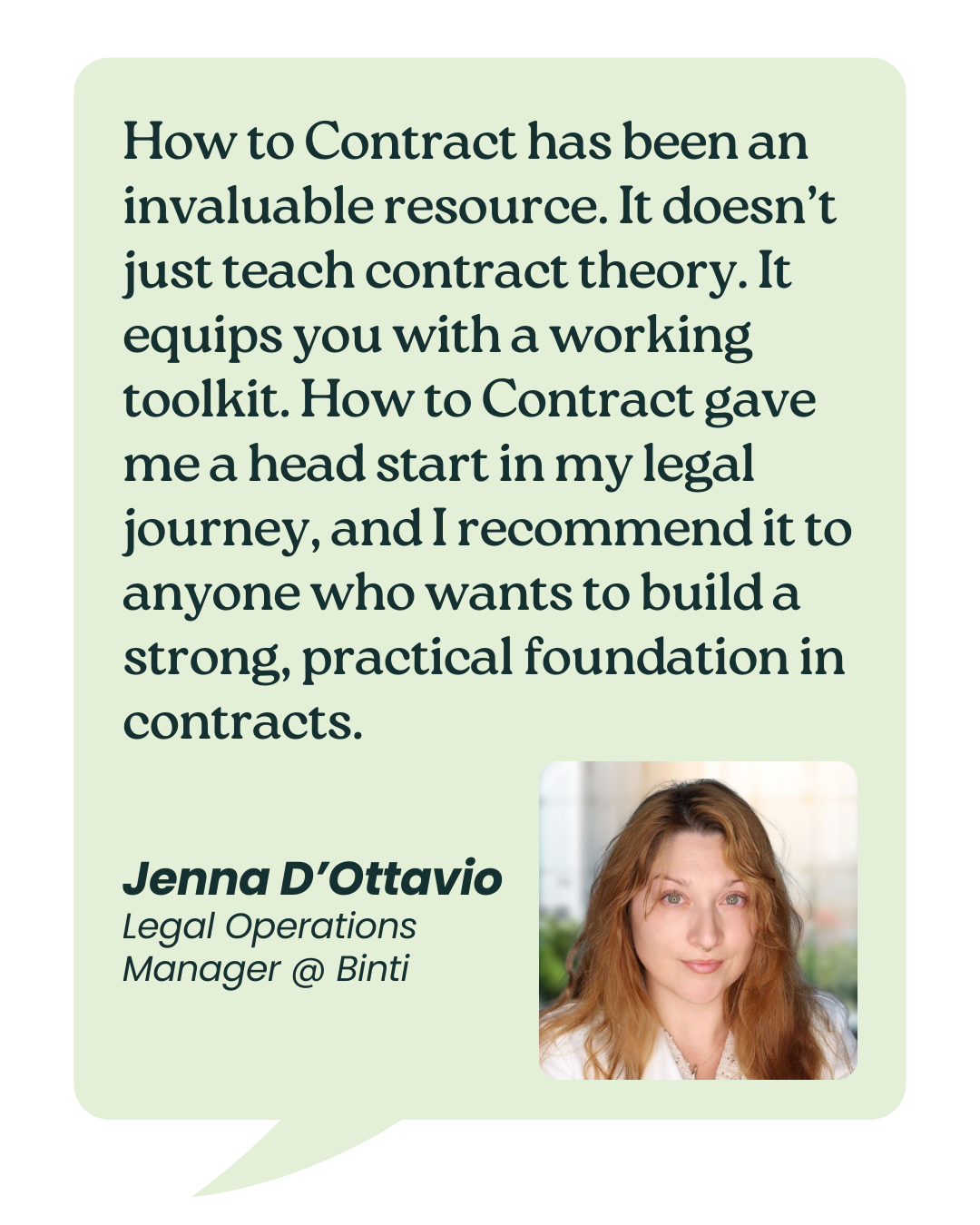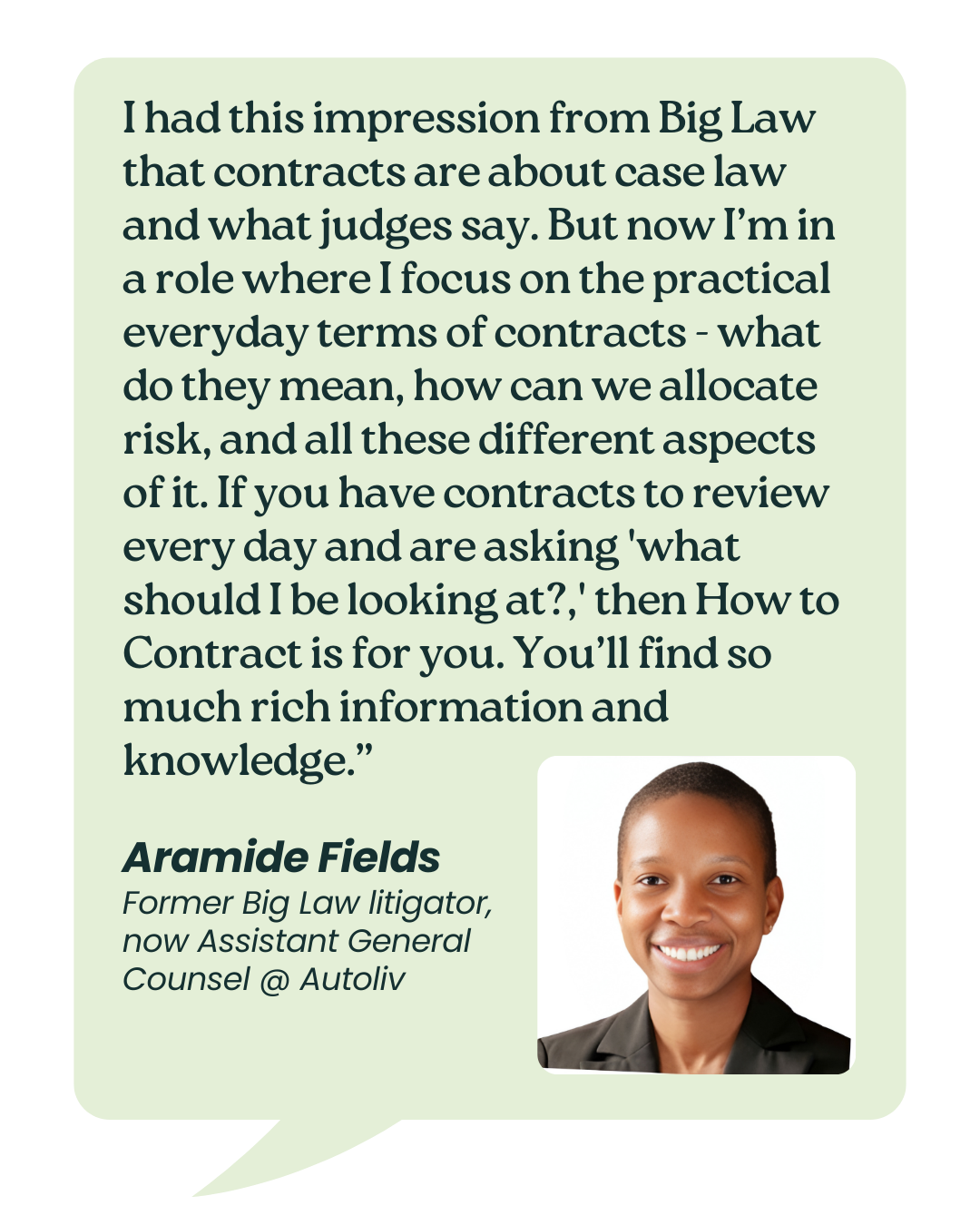
How I Contract: An Interview With Lucie Grant, General Counsel at Dura-Line
We interviewed Lucie Grant, Vice President and General Counsel at Dura-Line. This interview is part of the How I Contract interview series with experienced contract lawyers and professionals offering their insights and advice on contracts in the real world.
Lucie Grant’s Journey to General Counsel at Dura-Line
Can you tell us a story about what brought you to this specific career path? How did you learn contracts?
I qualified as an IP litigator many, many moons ago and soon found myself doing non-contentious IP/IT contractual work which led to my first in-house role in a retailer. I’ve been fairly deliberate about seeking out roles in “infrastructure” businesses — utilities, defense, life sciences, and now data communications — everything that a country needs to be able to operate as a society.
Along the way, I became a specialist in high-value infrastructure contracting, going from being a trainee and junior lawyer in private practice being trained and guided by senior lawyers and supervising partners, using precedents and guidance notes to drafting from plain paper and sometimes, in real time on a big screen in front of my internal clients and counterparties.
Nothing focuses the mind more than having to draft a clause from scratch with an audience…
How to Improve Contract Drafting and Negotiation Skills
What should lawyers and professionals do to get better at contract drafting and negotiation?
Properly understand the business you are representing and the risk context of the deal. This enables you to focus on the things which actually matter rather than the best “legal deal.” The best deal for your business and the best legal deal may not be the same thing.
In terms of negotiation, listen more than you speak; allow your counterparty to fill the available “airspace” so you can listen to their thought process and argumentation. Invariably, this enables you to get down to what is actually important to them and what their real concerns are rather than what has been redlined on the page.
What Makes a Good Contract and Why It Matters
What makes a good contract?
A document which is capable of being agreed upon and then delivered; the best legal drafting in the world counts for naught if you can’t agree it with the counterparty. That’s not to say one should concede points. Still, it is to point out that in the vast majority of cases, contracts are one piece of a continuing relationship so the ability to come to a consensus and agreement on a workable framework for your internal customer and the counterparty is critical.
Tips for Legal Team Management and Training
What is your #1 legal team management tip?
You’ve hired adult professionals who probably have different (and better) skills than you.
Empower them to do their job.
Dealing with Mistakes and Imposter Syndrome in Contract Work
How do you help your team learn contracts? What’s your process?
In my career, I’ve learned best by “doing” alongside a mentor.
We train our teams on points of law and drafting techniques.
We produce playbooks and guidance notes.
But there is no substitute for learning on the job and being able to talk through your questions and concerns with a more experienced team member.
How do you help your team handle mistakes they make in contracts?
Lawyers need to learn how to fail quickly and learn from the failure. Once is unfortunate, twice is a course of dealings.
That said, as a leader, one should be like an umbrella. When the rain comes down, one should cover one’s team, supporting and protecting them. When the sun shines, one should fold oneself away and let them bask in the light.
How do you help your team deal with imposter syndrome?
Firstly, I’ll say that my team is solid gold; genuinely great lawyers and better humans.
Sometimes, everyone gets “the wobbles”; I think it's a distinctly lawyery thing. We’re brought up to need to solve every issue. Other very clever people surround us. So it’s completely natural to sometimes feel daunted by the prospect of facing the lawyer on the other side etc.
Every member of my team has earned the right to be where they are; they’re smart and dedicated. But at every stage of one’s career, there will be a learning curve. In my view, that’s a positive thing if you see it as an opportunity for growth and to learn.
I hope I foster that environment within our team.
Collaborating and Listening as a Team
What are the top three things contract lawyers and professionals need to pay attention to when working in a team?
- You don’t know everything; listen more than you speak, particularly in negotiations.
- Ensure that everyone on the team understands the confidential nature of internal contractual discussions.
- Make sure that the people who are responsible for delivering the obligations are part of the team and understand the obligations they have to deliver. This is absolutely critical and I’ve often seen circumstances in which the deal team fails to involve the delivery team until very late in the process only to find that agreed provisions then have to be renegotiated.
How do you help the business learn about contracts?
Training, training, and training.
We do regular contracts training with our commercial colleagues using real-time examples and we have really good documented process flows, playbooks, and workshops to help answer questions and provide guidance.
The Biggest Lessons Learned in Contracts and Leadership
Could you share the biggest lesson you’ve learned managing a team of legal professionals?
Mostly, they have a far better, more nuanced idea of what we actually need to solve for.
Being a leader means having to take a big-picture view of what will work best holistically; what makes our team successful is ensuring that everyone has a voice and can participate in the decision-making.
Everyone’s view counts; the view from “their balcony” is different from the view from mine. So, by asking for perspectives and ensuring that everyone is bought into how we move forward, we ensure that we move forward as a team and not just as a group of individuals.
If you could give just one tip to lawyers and professionals, what would that be?
Know what you don’t know.
As an in-house lawyer, the range of issues and questions can be limitless. You cannot know everything and there is absolutely no shame in admitting that.
Ask good questions.
Never punt on something you don’t know. If you don’t know, say so — we always know how to find out.
Far more respect is garnered by saying “I don’t know, but I’ll come back to you” than by offering an answer which turns out to be wrong.
Could you share the biggest lesson you’ve learned in contracts?
Even if you have 31 open issues, in the end, both parties only care about 3 of them.
Spend time on the things that matter and really understand what matters to your internal client. Spending days negotiating a clause which turns out to be only tangentially important is of no value to anyone.
Also, it’s rare that contracts are “once and done”; usually, you’re negotiating with a counterparty who your business has a pre-existing relationship with or is hoping to have a relationship with.
Remember that your colleagues have invested time in building relationships before you got involved. Contractual negotiations can and should be collaborative.
What advice would you give to your younger self when you started working with contracts?
Relax.
For the vast majority of your career, if you get it wrong, no one is going to die. It might be embarrassing and you’ll probably fixate on it for ages. Don’t — worse things will happen in life.
Also, remember that you have this. You’re smart enough to work out the things you don’t know and practice makes perfect.
Those massive contracts are just a series of clauses, keep going and try not to stress!
Myths About In-House Counsel and the Reality of the Role
What are the biggest myths about being in-house counsel? How would you debunk them?
That it’s a soft option.
Being an in-house counsel is not the easy option our colleagues in private practice sometimes assume it to be.
It is a challenging role which requires you to take on a vast raft of legal subject matters, sometimes in multiple jurisdictions, give good and wise counsel, manage the risk profile of your business, usually with limited resources, and develop good commercial acumen along the way.
I love my role!
Thank you, Lucie!
How to Contract's membership is designed to help you build real-world expertise with commercial contracts. Get access to our comprehensive system of live and on-demand courses, weekly lessons, detailed playbooks, and more. Join today!

